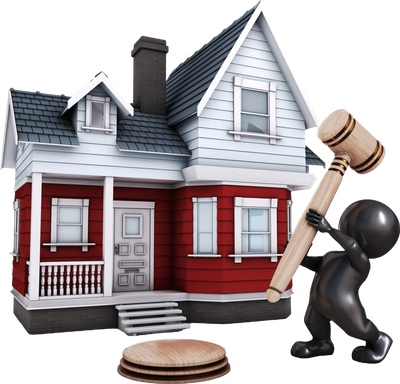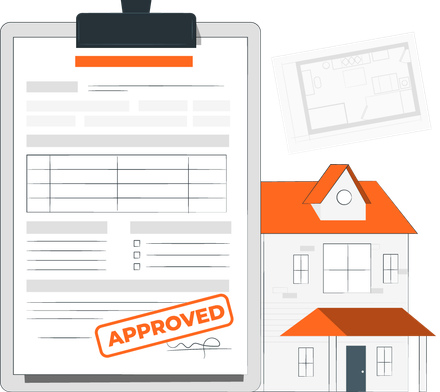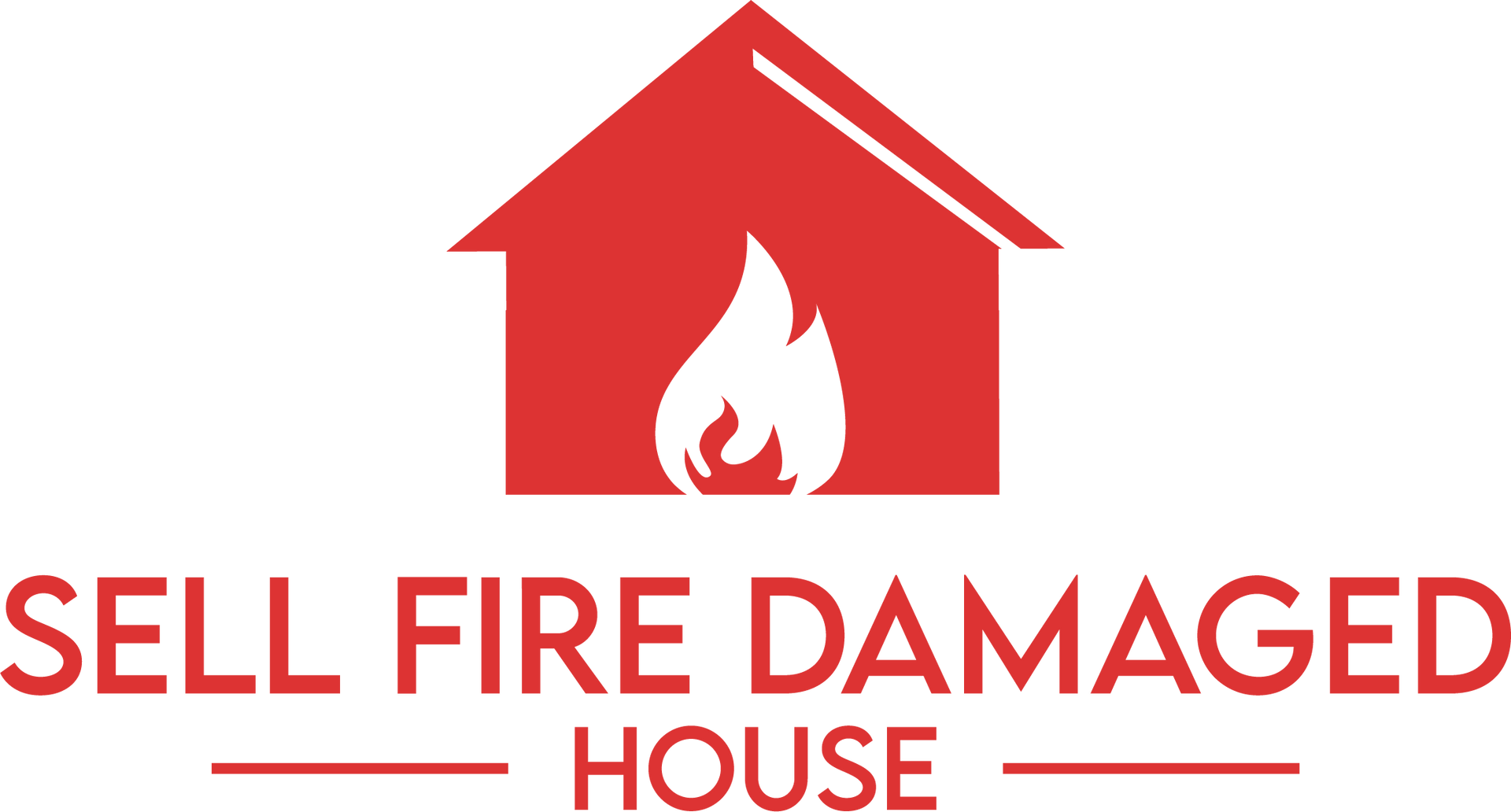Sell Your
Fire Damaged House
We Buy Homes With Fire Damage Nationwide
Get Your No-Obligation All Cash Offer Started Below!
We buy houses in any condition. No realtors, no fees, no commissions, no repairs & don't clean.
Home - Website Form
Fire damage transforms a cherished home into an overwhelming challenge overnight.
As the CEO, I've guided countless homeowners through this difficult journey, turning devastating situations into successful property sales.

The path forward after fire damage involves critical decisions that impact both your financial outcome and emotional well-being. Through years of hands-on experience, I've developed proven strategies that work for every scenario - from quick as-is sales to full restoration projects that maximize property value. My expertise in transforming fire-damaged properties has revealed that success lies in understanding your options and making informed choices early in the process.
Whether you're navigating
insurance claims, evaluating
repair costs, or exploring
cash buyer opportunities, this comprehensive guide draws from real-world successes to illuminate your path forward. Let's explore practical solutions that align with your timeline, budget, and personal circumstances to help you move confidently toward your next chapter.
Locations We Can Offer Assistance
First Steps After Fire Damage
Last month, I walked through a fire-damaged property with James, a homeowner who was overwhelmed by the aftermath of an electrical fire. The look of despair on his face reminded me of countless other homeowners I've helped through similar situations. Through these experiences, I've developed a practical approach that has helped numerous families navigate the challenging days after a fire.
Safety Assessment and Documentation
My first rule when inspecting fire damage: never enter without
official clearance. When James and I received permission from the
fire department, we began our thorough documentation process. I still remember the weight of emotion as we photographed each room:
- Detailed photos and videos of all damaged areas
- Close-up shots of specific damage points
- Documentation of undamaged sections
- Comprehensive inventory lists of affected items
- Time-stamped images for insurance purposes
During my years helping homeowners, I've learned that meticulous documentation becomes your strongest ally in insurance claims and future negotiations.
Insurance Claims Process
I've witnessed how crucial those first 24-48 hours are for insurance claims. During my walkthrough with James, I immediately helped him contact his insurance provider. Here's my tried-and-true approach to managing insurance claims:
- Contact your insurance agent immediately
- Request written documentation of your coverage
- Create a detailed communication log including:
- Names of representatives
- Dates and times of conversations
- Summary of each discussion
- Follow-up actions required
I always make it a point to be present during insurance adjusters' visits. Your personal insights about your property can significantly impact their assessment.
Professional Damage Evaluation
Through my experience with hundreds of fire-damaged properties, I've learned that hidden damage often lurks beneath the visible destruction. When I brought in an independent evaluator for James's property, we discovered concealed electrical damage that could have been easily missed. A professional evaluation should include:
- Structural integrity assessment
- Hidden moisture damage detection
- Air quality testing
- Electrical system evaluation
- Foundation and wall stability checks
These detailed inspections have repeatedly proven invaluable in negotiations with insurance companies and potential buyers.
Temporary Housing Solutions
Finding a temporary home can feel overwhelming amid the chaos of fire damage. During James's situation, I helped him navigate his Additional Living Expenses (ALE) coverage. Based on my experience helping displaced homeowners, here are the key considerations:
- Review your insurance policy's ALE coverage limits
- Consider location proximity to:
- Your damaged property
- Work or school
- Support systems
- Evaluate different accommodation options:
- Extended-stay hotels
- Short-term furnished rentals
- Family housing arrangements
I've found that choosing the right temporary housing can make a tremendous difference in managing the recovery process, which typically spans several months.
Your Selling Options Explored
During my years helping homeowners, I've walked alongside countless families navigating the challenging journey of selling their fire-damaged properties. Let me share some real-world insights that could help you choose the best path forward.
01.
The As-Is Sale Path
Cash Buyers and Investors
I'll never forget working with Maria, whose kitchen fire had left her home severely damaged. She needed to relocate quickly, and I connected her with a cash buyer who closed the deal in just 12 days.
It was a relief to see the weight lift from her shoulders as she handed over the keys. Companies like HomeLight and iBuyer have become my go-to partners for these situations, offering swift closings without the hassle of repairs.
Direct Marketing to Contractors
One of my most rewarding experiences was helping a family sell their fire-damaged colonial home to a local contractor. I'd spotted the property's hidden potential, and the contractor shared my vision.
These
renovation specialists often become my trusted partners because they can see past the damage to recognize a property's true value. Their expertise in
restoration makes them ideal buyers for homes needing extensive repairs.
02.
The Repair-First Approach
Cost Analysis
Last month, I sat down with the Johnsons to crunch the numbers on their repair options. After gathering multiple contractor estimates, we discovered that a $50,000 investment in repairs could boost their property's value by $120,000. This kind of detailed analysis has become my standard practice, helping homeowners make informed decisions about their investment.
Timeline Considerations
I remember overseeing a full restoration that taught me valuable lessons about patience and persistence. While we initially planned for a three-month timeline, unexpected structural issues emerged.
Despite the extended renovation period, the final sale price made the wait worthwhile. Most repair projects I manage typically span three to six months, depending on
damage severity.
03.
Working With Real Estate Agents
Finding Specialized Agents
Throughout my career, I've built relationships with agents who truly understand fire-damaged properties. These specialists bring invaluable expertise to the table, often maintaining networks of renovation-minded buyers. My go-to agent, Sarah, recently sold a challenging property in just three weeks by tapping into her network of restoration specialists.
Marketing Strategies
My experience has taught me that successful marketing of fire-damaged properties requires highlighting potential rather than dwelling on damage. I always encourage professional photography that showcases salvageable features and good bones.
Creating detailed property reports with repair estimates and projected post-renovation values has consistently helped my clients secure better offers. Just last week, this approach helped a seller receive three competitive bids, all above their asking price.
Financial Aspects Of Your Sale
Having personally guided hundreds of homeowners through selling fire-damaged properties, I've witnessed firsthand how crucial it is to understand the financial implications. Let me share some real-world insights from my journey that will help you navigate these complex decisions.
Property Value Assessment
I'll never forget working with a stunning Victorian-style home in New England where fire had claimed
40% of the structure. Before the incident, this architectural gem was valued at
$450,000. During our detailed assessment, we focused on three critical values:
- Pre-fire market value
- Current as-is condition value
- Potential post-repair value
Through this experience, I discovered that the property's historical significance and prime location helped maintain a surprisingly strong as-is value. I always tell my clients to secure at least three professional appraisals – it's a lesson I learned after seeing too many homeowners rely on single evaluations that didn't capture the full picture.
Insurance Settlement Impact
I recently worked with a family whose $180,000 insurance settlement completely transformed their selling options. Their story taught me valuable lessons about maximizing insurance payouts. From my years of experience, I've found that understanding your settlement's tax implications is absolutely crucial.
My personal tip: Always partner with a qualified tax professional to understand how insurance payments affect your capital gains calculations. I've seen this simple step save homeowners thousands in unexpected tax obligations.

Repair Cost Analysis
My work has taught me to break down repair costs into these essential categories:
- Structural repairs and reinforcement
- Cosmetic restoration and finishing
- Code compliance upgrades
- Environmental remediation (smoke and water damage)
Just last month, I helped a worried homeowner evaluate repair costs for their fire-damaged kitchen. Together, we discovered that focusing on critical structural repairs, rather than complete restoration, offered the best financial outcome. This approach saved them nearly $30,000 while maintaining the property's marketability.

Price Setting Strategies
Drawing from my extensive experience, I've developed a strategic approach to pricing fire-damaged properties. Last summer, I worked with a client whose property had moderate fire damage. Instead of settling for a rock-bottom price, we positioned the property at 70% of its pre-fire value. This strategic decision attracted multiple offers from both investors and renovation-ready homeowners. My proven pricing framework considers:
- Recent sales data from similar fire-damaged properties nearby
- Current market conditions and buyer demand
- Essential repairs versus cosmetic improvements
- Local real estate trends and neighborhood development plans
Through countless transactions, I've learned that transparent pricing backed by detailed documentation consistently leads to faster sales and better offers. I've seen this approach help sellers achieve up to 15% more than their initial expectations, even in challenging market conditions.
Legal Requirements And Obligations
Throughout my years helping homeowners navigate fire-damaged property sales, I've witnessed firsthand how understanding legal obligations can make or break a transaction. Let me share the essential insights I've gained from working with hundreds of homeowners in similar situations.
✅ Disclosure Requirements
I remember working with Sarah, a homeowner who initially hesitated to disclose minor smoke damage in her back bedroom. After our discussion about liability protection, she understood why complete transparency was crucial.
While disclosure laws vary by state, my experience has taught me that comprehensive disclosure protects both sellers and buyers. Here's what you must disclose:
- The complete extent and location of fire damage
- All completed repairs and restoration work
- Any potential hidden or structural damage
- Environmental hazards including smoke residue and air quality
- Current or pending insurance claims
- Previous professional assessments and findings
✅ Documentation Needs
Last month, I helped the Martinez family sell their fire-damaged home. Their meticulous record-keeping made the process remarkably smooth, reinforcing my belief in thorough documentation. Based on my experience, here's the essential paperwork you'll need:
- Official fire incident reports from local authorities
- Detailed professional damage assessment reports
- Written repair estimates and completed work invoices
- Complete insurance claim documentation and correspondence
- Current building inspection certificates
- Environmental and air quality testing results
- Photographic evidence of damage and repairs
✅ Building Code Compliance
One of my most memorable cases involved helping Tom sell his 1960s fire-damaged home. The experience taught me valuable lessons about navigating building code requirements. Modern building codes often demand significant updates after fire damage, including:
- Complete electrical system overhauls
- Enhanced fire safety system installation
- Structural reinforcement and certification
- Updated ventilation and HVAC systems
- Proper permitting for all repair work
- Modern insulation and energy efficiency standards
✅ Insurance Requirements
My work with various insurance companies has given me unique insights into their property sale requirements. Recently, I guided a client through a particularly complex insurance situation that required careful navigation of multiple requirements:
- Regular communication with insurance adjusters
- Written approval for repair plans
- Documentation of all completed work
- Final sale price authorization
- Proof of proper claim resolution
- Updated property valuations
I've found that partnering with a specialized real estate attorney proves invaluable in these situations. Their expertise helps navigate the complex intersection of insurance requirements, disclosure obligations, and sales contracts.
Through my experience, I've learned that meeting all legal requirements not only provides protection but also attracts serious buyers who value transparency and proper documentation.
Making The Right Choice For Your Situation
I've walked alongside countless families through their fire-damaged home journeys. Each story is unique, and I'd love to share some real-world insights I've gathered from these deeply personal experiences.
Time Constraints
Last month, I helped a young family who received an unexpected job transfer to Seattle. Their pressing timeline completely shaped their selling approach. Here's what I've learned about evaluating time constraints:
- Full home restoration: 3-6 months average completion time
- As-is cash sale: Often closes within 2 weeks
- Traditional market listing: Typically 30-90 days
- Insurance claim processing: Usually 2-4 weeks
Through my experience, I've found that being brutally honest about your timeline from the start helps prevent added stress and unnecessary delays.
Financial Position
I'll never forget working with Tom and Martha, a retired couple whose insurance payout fell $50,000 short of their repair estimates. Your financial picture shapes every available option, so let's break down the key elements:
- Current mortgage balance
- Insurance settlement amount
- Available repair funds
- Monthly expenses:
- Mortgage payments
- Property taxes
- Temporary housing costs
- Utility bills
I've watched homeowners with robust insurance coverage successfully restore and sell their properties for top dollar. However, I've also seen situations where a quick as-is sale saved homeowners from mounting debt, especially when factoring in ongoing carrying costs.
Emotional Readiness
One of my most memorable clients, Sarah, taught me an invaluable lesson about the emotional weight of selling a fire-damaged home. Initially determined to sell immediately, she later realized she needed time to process her loss. From my experience, consider these emotional aspects:
- Personal attachment to the property
- Family members' feelings and input
- Comfort level with different selling approaches
- Readiness to make major decisions
- Need for closure or fresh start

Market Conditions
Just last summer, I worked with a client whose fire-damaged property received multiple offers above asking price, thanks to our area's housing shortage. When evaluating market conditions, I always examine:
My years in this specialized market have shown that strong selling conditions might justify renovation investment, while slower markets often favor as-is sales. I've built relationships with local market experts who provide invaluable insights for timing these unique sales. Through hundreds of transactions, I've learned that success comes from carefully weighing these factors against your personal circumstances.
Take time to evaluate each aspect thoroughly, and remember that professional guidance can illuminate options you might not have considered. Your unique situation deserves a tailored solution that addresses both your practical needs and personal comfort level.
Get Your No-Obligation All Cash Offer Started Below!
We buy houses in any condition. No realtors, no fees, no commissions, no repairs & don't clean.
Start Your No-Obligation All-Cash Offer Below!
We purchase homes in any condition. There are no realtors, no fees, no commissions, no repairs, and you don't need to clean.
Home2 - Website Form
Frequently Asked Questions
How long does it typically take to sell a fire-damaged house?
During my years helping homeowners sell fire-damaged properties, I've witnessed varying timelines depending on the chosen path. When I work with motivated cash buyers, we've closed deals in as quick as 7 days, though most as-is sales typically complete within 2-3 weeks.
I remember one particular case where we closed in just 10 days because the seller needed immediate relief from their situation. For those choosing the restoration route, I've guided clients through 3-6 months of repairs, followed by a traditional sale process that usually spans 30-90 days.
Will my insurance company help with the sale process?
Let me share what I've learned from handling countless fire-damaged properties: while insurance companies won't directly assist with selling, they're absolutely crucial to the process. I recently worked with a homeowner whose detailed insurance documentation became the cornerstone of their successful sale. Your insurance settlement will significantly shape your selling options, and I always tell my clients to keep meticulous records of every interaction. From my experience, these records become invaluable during price negotiations and disclosure requirements.
Can I get a fair price for my fire-damaged property?
Through my journey of helping homeowners navigate this challenging situation, I've seen firsthand that fair prices are absolutely achievable. Last month, I helped a family sell their as-is property for 65% of its pre-damage value, which exceeded their expectations.
In my experience, as-is properties typically fetch 50-70% of their pre-damage value, while fully restored homes often recover 90-100%. I've found that understanding local market conditions and being transparent about the property's condition leads to the most favorable outcomes.
What repairs are absolutely necessary before selling?
Having walked through hundreds of fire-damaged properties, I can tell you that safety and structural integrity always come first. I remember one property where addressing just the essential electrical hazards made a $20,000 difference in the final sale price. Here's what I've found to be absolutely necessary:
- Securing the property against further damage
- Addressing immediate safety hazards
- Ensuring structural stability
- Fixing critical electrical issues
- Preventing moisture intrusion
For traditional sales, I've seen the best results when sellers also address smoke damage, restore plumbing functionality, and repair roof damage.
How do I find reliable cash buyers for my fire-damaged house?
After years of working in this space, I've developed a foolproof approach to finding trustworthy buyers. Just last week, I guided a seller through this process, and they received multiple competitive offers from verified buyers. Here's my personal checklist for finding reliable cash buyers:
- Research companies specializing in fire-damaged properties
- Verify business licenses and professional affiliations
- Check references from recent sellers
- Read online reviews and testimonials
- Contact local real estate investor associations
- Request clear documentation of all offers
- Avoid buyers who pressure quick decisions
Remember, a reputable buyer will always encourage you to explore multiple options and provide transparent pricing details.
Conclusion
Let me share a story that deeply resonates with my experience helping homeowners sell
fire-damaged houses. A few years ago, I worked with Sarah, whose family home suffered extensive fire damage. Like many in her situation, she felt overwhelmed by the choices ahead – sell as-is, restore, or something in between. Her journey taught me that each
fire-damaged property has its own unique path forward.
I'll never forget the moment Sarah realized she wasn't alone in this process. After connecting her with our
network of insurance specialists and
qualified buyers, I watched her confidence grow. From my years in this field, I've learned that
professional support can make all the difference in turning a challenging situation into a manageable journey. Here are the key insights I've gathered from working with countless homeowners:
- Every successful sale starts with understanding your unique circumstances
- The fastest solution isn't always the best fit for your situation
- Professional guidance can illuminate options you might not have considered
- Your comfort level should guide your final decision
Through my work with fire-damaged properties,
I've seen remarkable transformations – not just in the houses themselves, but in the homeowners who find their way forward. Whether you're leaning toward working with a
specialized real estate agent, exploring
cash buyer options, or considering
full restoration, trust that there's a solution aligned with your needs.
I remember helping a family who initially thought their fire-damaged home was unsalvageable. By taking time to evaluate their options and seeking
professional guidance, they found a path that exceeded their expectations. Your journey might look different, but I'm confident that with careful consideration and the right support, you'll find your way to a successful outcome.



